Imagine experiencing frequent sinus infections – like an unwanted house party in your head, where all the germs are invited, dancing around non-stop inside the congested nose and behind the eyeballs. Every time you move your head, it feels like they’re using it as a trampoline. You can’t predict when the coughing fits will hit you, but they always seem to come at the most inconvenient times. And in between, tissue papers become your constant companion, and you can’t leave home without them!
Sinus infections can be a significant source of discomfort and frustration but fear not. Mother Nature’s spice cabinet has a secret stash of herbs to help kick that party to the curb! In this blog post, let’s delve into the benefits of these herbs, and I will give detailed instructions on how to use them effectively. So, say goodbye to your worries and discover the power of natural herbs for sinus infection.
Peppermint(mentha piperita)
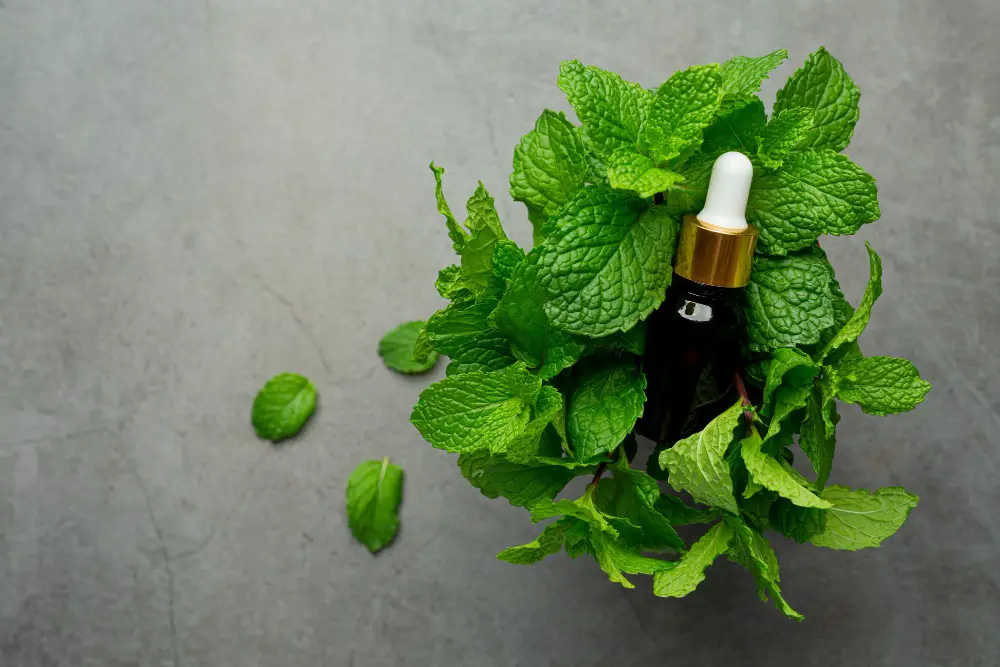

This herb is renowned for its ability to alleviate sinus-related discomfort and enhance respiratory function. Its primary component, menthol, possesses soothing properties and is widely employed in medical applications to address a variety of ailments. A study in the International Journal of Clinical and Experimental Medicine unequivocally illustrates the effectiveness of peppermint oil in alleviating nasal congestion and cough symptoms in individuals suffering from acute sinusitis.
How to use: Peppermint can be used in various ways for relieving sinus pain and congestion.
Peppermint steam inhalation
- Add a few drops of peppermint essential oil to a bowl of hot water.
- Adjust your face over the ball carefully so as not to get too close to avoid face burn.
- Cover your head and face by draping a towel over the head as if to create a tent and inhale the steam for 10 minutes.
- The Peppermint steam will unclog the nasal passage and relieve the sinus pain within minutes!
peppermint tea
- Add one to two teaspoons of dried peppermint leaves or a peppermint tea bag in a boiling one cup of water.
- Cover it and let it steep for 5 minutes.
- Sieve the tea into the cup and sip it while it is warm.
Peppermint saline nasal spray
- Mix a few drops of peppermint essential oil with a saltwater solution.
- Store it in a clean nasal spray bottle.
- Apply it into the nostrils whenever there is nasal congestion. The salt water helps to moisturize the nasal passage while the peppermint oil soothes the passage while clearing it.
Topical application
- Mix a few drops of peppermint essential oil with carrier oils like olive or coconut oil.
- Gently rub this oil mixture on the temples, neck, and chest.
- The menthol in peppermint oil helps relieve congestion and pain and thus helps reduce sinus symptoms.
cayenne pepper(Capsicum annuum)
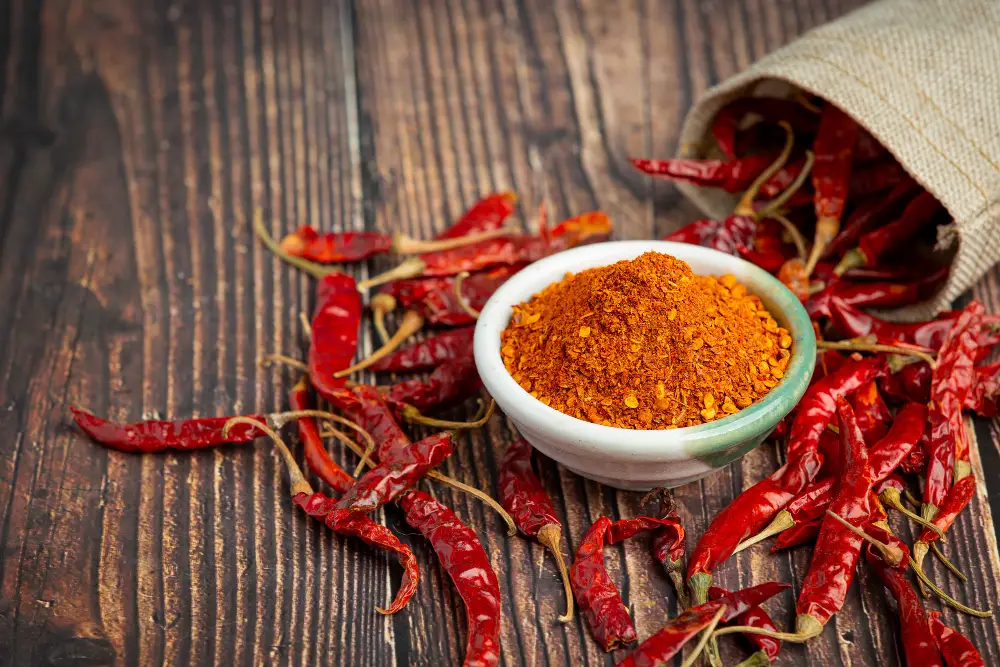

This potent spice, commonly known as red chili peppers, contains an active compound, capsaicin, which possesses various medicinal properties. It has a long history of traditional use for alleviating symptoms of sinusitis by effectively thinning mucus and facilitating its drainage. The active component capsaicin is recognized for its ability to enhance blood circulation and reduce inflammation, consequently improving airflow and providing relief from sinus pressure.
Additionally, this exceptional compound exhibits pain-relieving and anti-inflammatory characteristics, relieving headaches and facial pain commonly associated with sinusitis. A study shows that nasal spray containing cayenne pepper helps clear sinus inflammation.
How to use: This herb can be incorporated into your routine in the following manner. Nevertheless, it is prudent to seek guidance from a healthcare expert before introducing it to your regimen to ensure its compatibility with your circumstances.
cayenne pepper tea
- Add a pinch of cayenne pepper To a cup of boiling water.
- Add honey or jaggery for taste.
- Sip it slowly to get nasal decongestion.
Nasal irrigation
- Prepare a nasal spray by mixing half a teaspoon of this herb with one cup of warm water.
- Store this solution in a spray bottle and apply this in each nostril when needed.
- An initial burning sensation helps to clear congestion and promote sinus drainage.
chrysanthemum(c.indicum or C.Morifolium)


This popular decorative flower has been used traditionally in Chinese medicine for its Anti-inflammatory and antioxidant properties. It promotes healthy mucus production and helps in sinus drainage. Chrysanthemum also boosts the body’s immune system, thus helping fight pathogens responsible for sinus infection. It helps to relieve sinus congestion arising from environmental pollution, such as smoke and irritants.
How to use: This beautiful aromatic flowering plant can be used in the following way to relieve sinus congestion and symptoms.
chrysanthemum steam inhalation
- Add dried chrysanthemum flowers to the Hot steaming water taken in a big bawl.
- Inhale the steam while covering the head with a big towel.
- Care should be taken not to draw your face too close to the steaming water.
chrysanthemum tea
- Boil dried chrysanthemum flower with water for 10 minutes.
- Sieve the tea in a cup.
- Add honey for taste.
chrysenthemum essential oil
- Dilute chrysanthemum essential oil with a carrier oil like coconut oil.
- Apply it over the chest, nose, and forehead to relieve congestion.
umckaloabo(pelargonium sidoides)
This herb, native to South Africa, has a rich history of traditional use among African tribes spanning centuries, particularly in treating various respiratory and gastrointestinal ailments. Proanthocyanidins, the key ingredient in umckaloabo, is an active compound known for its remarkable anti-inflammatory, antibacterial, and antiviral properties.
These properties hold great promise for the natural management of sinus infections, offering relief from bothersome symptoms such as headaches, facial pain, and nasal congestion. A clinical trial involving individuals afflicted with acute sinusitis demonstrated the efficacy of Pelargonium sidoides extracts in alleviating sinusitis symptoms, underscoring its potential as an effective remedy.
How to use: Umckaloabo is available in various formats, including liquid extracts, capsules, and tablets. It is recommended to seek guidance from a healthcare professional concerning the appropriate dosage, as it can vary depending on factors such as the individual, the specific product brand, and the severity and duration of the sinus infection.
Licorice(glycyrrhiza glabra)
This herbal root boasts a myriad of therapeutic benefits. The sweet root of licorice harbors glycyrrhizin, a bioactive compound renowned for its potent anti-inflammatory, antiviral, and antibacterial properties, making it a formidable ally in the battle against sinus infections. It excels at alleviating and soothing irritated nasal passages. A comprehensive study has affirmed that nasal irrigation using licorice is a natural, secure, and cutting-edge approach for successfully managing sinusitis.
How to use: Licorice holds promise as a natural remedy for addressing sinus infections. It is essential to be aware that women who are pregnant or people who have known allergies to licorice should seek guidance from a healthcare professional before incorporating licorice into their sinusitis treatment regimen.
licorice tea
- Add 1/4 teaspoon licorice root powder to boiling water and boil it for a few minutes, or put its tea bag in a cup of hot water.
- Strain it and have it for two to three times a day.
Licorice nasal spray
- Mix 1/4 teaspoon of root extract of this herb in a cup of warm distilled water and a pinch of salt.
- Pour this solution into a clean spray bottle.
- Spray it gently into the nose to clear the sinuses and drain mucus.
licorice inhalation
- Boil water with some licorice root in a big bowl.
- Inhale its vapor to clear nasal congestion.
Purple coneflower (Echinacea)
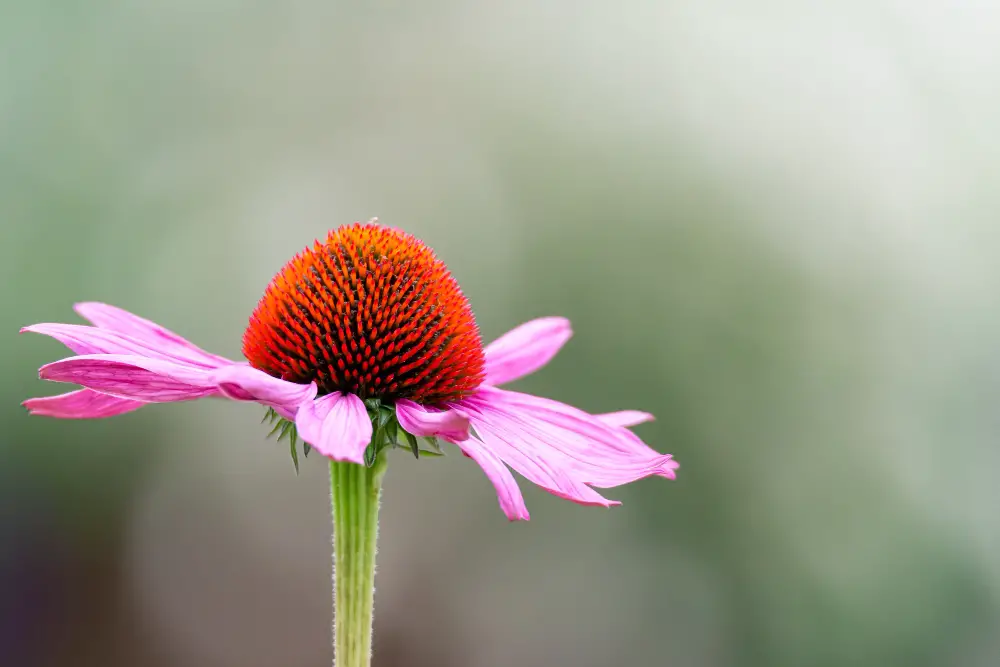

Native to North America, this herb is a potent defender against viruses and bacteria, making it a top choice among professional herbalists for treating sinusitis. Echinacea boasts an impressive arsenal of compounds, including alkamides, flavonoids, and polysaccharides, which can combat the pathogens responsible for sinus infections. Notably, a clinical trial demonstrated that this herb effectively reduces the necessity for antibiotics in children with respiratory tract infections.
How to use: Echinacea is accessible in various forms, including tea bags, tinctures, and capsules. It is highly advisable to adhere to the recommended dosage guidelines provided by healthcare professionals, as the appropriate dosage may vary depending on the severity of the infection and the specific brand of product you choose. It is to be noted that capsules and tinctures are concentrated options, while echinacea tea is a more mild alternative.
garlic(alilium sativum)
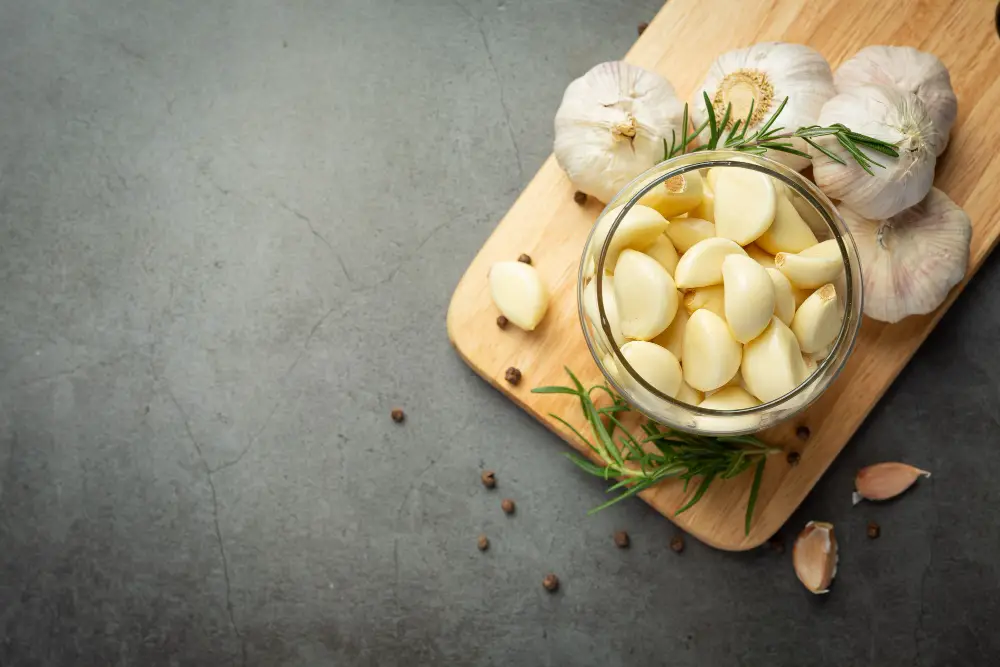

Throughout history, garlic has been hailed as a potent natural antibiotic, commonly employed to address colds and sinus infections. This aromatic herb harbors a bioactive compound known as Allicin, which boasts remarkable antimicrobial, anti-inflammatory, and immune-enhancing properties.
A comprehensive clinical trial involving a cohort of 146 participants, administered either a placebo or a daily garlic supplement over 12 weeks during the winter season, provided compelling evidence. The study revealed that individuals who received garlic supplementation exhibited a significantly reduced susceptibility to cold infections and experienced swifter recovery than those who were administered a placebo.
How to take: Garlic is commonly available in the kitchen and is used as a spice. It can be used in the following ways to treat sinus infections.
garlic nasal rinse
- Crush Two or three garlic cloves and mix them in one cup of distilled water.
- Allow this to sit for 7 to 8 hours.
- Add salt to it and strain it in a clean, squeezy bottle.
- Do it twice daily. That will help to clear congestion and headaches.
garlic tea
- Add two or three crushed garlic cloves to a cup of boiling water.
- Let it steep in low flame for 7 to 8 minutes.
- Strain it, add honey or sugar for taste and flavor, and drink it warm. This tea can be taken two to three times during a sinus infection.
Raw Garlic or its supplements
- One mashed clove of raw garlic can be taken with food or honey to combat sinus infection.
- Garlic supplements are also available in capsule and tablet forms, which should be taken with expert guidance.
stinging Nettle(Urtica dioica)
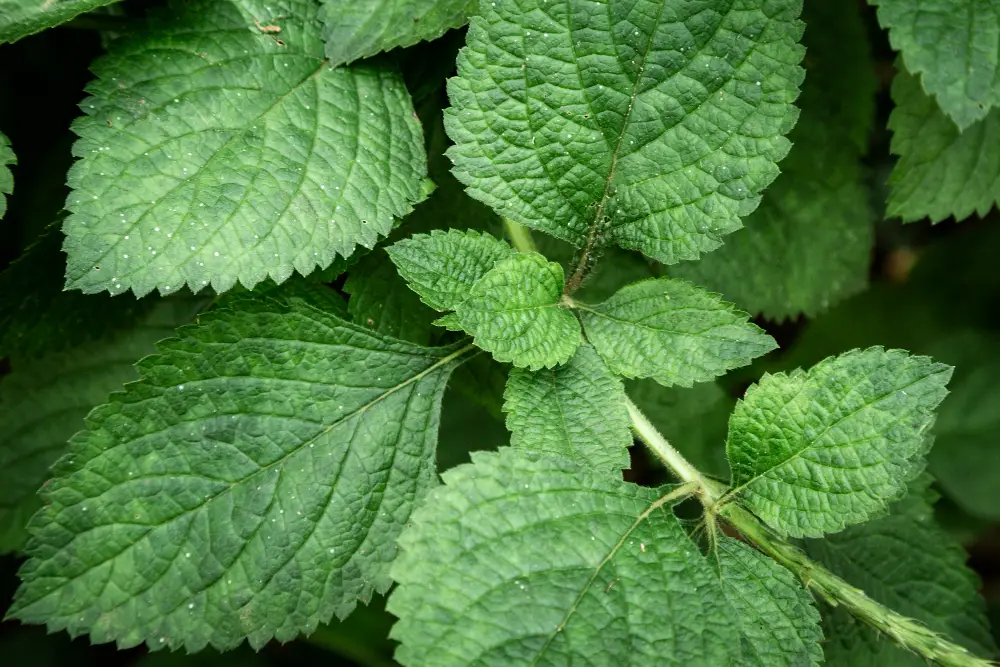

This herb, renowned for its serrated leaves and fine hairs housing stinging substances, offers promising potential in treating sinus infections. It contains quercetin, a compound known for its anti-inflammatory properties, effectively alleviating inflammation in the nasal passages. Stinging nettle is additionally abundant in antihistamines, making it a valuable resource for easing allergy-related symptoms such as sneezing and runny nose.
Furthermore, the rich array of vitamins and minerals within stinging nettle boosts the immune system, aiding in the battle against sinusitis. Research has shown that nettle extracts possess anti-inflammatory attributes that can mitigate the allergic responses that trigger sinus infections.
How to use: Stinging nettle is versatile and can be incorporated into your wellness routine through various forms such as capsules, tablets, or tinctures readily found in the market. Among the preferred methods to enjoy stinging nettle’s benefits is brewing a soothing tea from dried nettle leaves.
Additionally, stinging nettle extracts can be conveniently acquired from health food stores, and a few drops of these extracts can be mixed into water or tea to help alleviate sinus congestion.
yerba Mansa(anemopsis California)
Yerba Mansa is an exceptionally powerful herb when it comes to addressing sinus infections. Its remarkable blend of anti-inflammatory, antimicrobial, and analgesic properties aligns perfectly with its historical use in Native American traditional medicine. This herb’s unique ability to effectively decongest nasal passages makes it especially valuable in sinusitis characterized by excessive mucus discharge.
Furthermore, its analgesic attributes offer relief from the often excruciating headaches and pain associated with sinusitis. A study has indicated that active compounds, such as sesamin and asarinin derived from Yerba Mansa root extract, exhibit potent antimicrobial properties.
How to use: This versatile herb can be harnessed for sinus relief through two effective methods: as a soothing tea or in the form of invigorating steam inhalation.
Yerba Mansa Tea
- Into one cup of boiling water, add one teaspoon of dried Yerba Mansa root or leaves.
- Allow it to steep for 15 minutes.
- Strain and drink 1/4th cup of the tea at a time(2 to 3 times) while it is slightly hot.
yerba Mansa steam inhalation
- Boil water in a saucepan and add a handful of dried Yerba Mansa leaves or roots.
- Inhale the steam by covering the head with a big towel for 10 to 15 minutes.
Ginger(zingiber officinale)
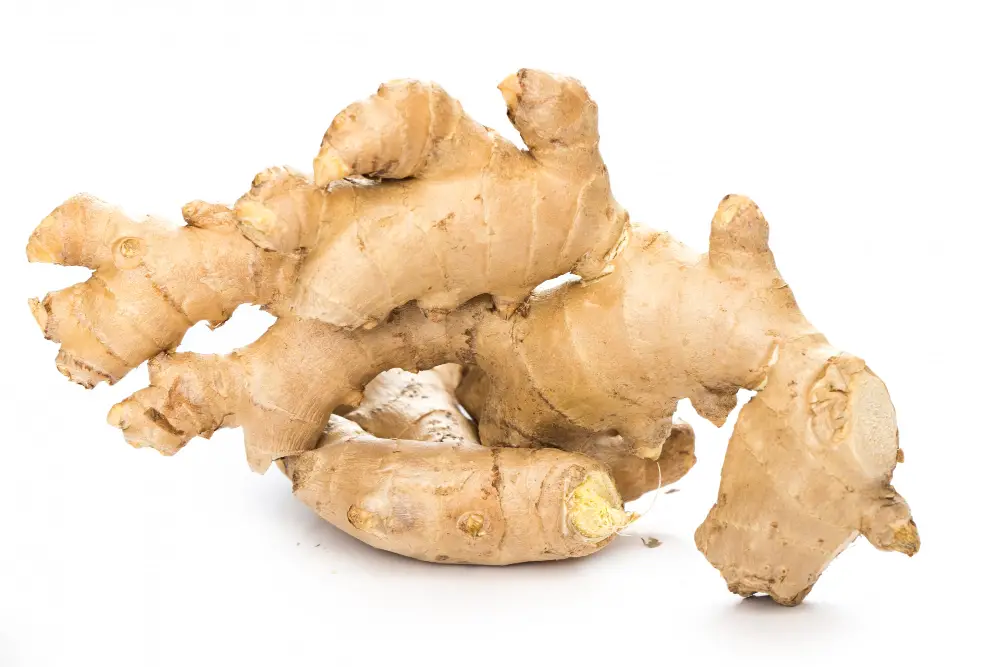

Ginger, a common herb with a natural remedy has a rich history of traditional use. Embrace its anti-inflammatory, analgesic, and antimicrobial properties, and experience its therapeutic effects on various ailments, including sinus infections. The active compounds in ginger, such as gingerols, shogaol, and zingerone, work together to help you feel better and live life to the fullest.
A study has revealed that ginger plays a pivotal role in promoting the relaxation of smooth muscle in the airways, potentially paving the way for innovative treatments in the realm of airway diseases.
How to use: Ginger can be used in the following ways to alleviate nasal congestion in sinusitis:
Ginger tea
- Add a small piece of grated ginger root to one cup of boiling water.
- Let it steep for 5 minutes.
- Strain it and add honey for taste.
Ginger compress
- Grate fresh ginger root and wrap it in a clean cotton cloth.
- Place the cloth gently over the nose for 20 minutes.
- This will help to reduce the sinus pressure and pain.
Ginger steam inhalation
- Boil water in a large bowl and add fresh ginger root to it.
- Place your face carefully over it to inhale the steam while covering the head with a towel for 10 minutes.
elderberry(sambucus nigra)
Harnessing the power of elderberry, with its rich and regal purple hue, has been a time-honored tradition for boosting immunity, fighting viruses, and reducing inflammation. Packed with vitamin C, it’s a natural remedy for relieving a runny nose caused by sinus infections.
In a clinical study comprising 60 patients experiencing influenza-like symptoms, individuals were administered either elderberry extract or placebo syrup four times a day. The results revealed that those receiving elderberry extract experienced symptom relief, on average, four days sooner than those who received the placebo.
How to use: To manage sinusitis, one can incorporate elderberry in the following ways:
elderberry Syrup
- It is a popular choice, particularly for kids, because of its sweet taste.
- One to two teaspoons of this syrup can be taken daily to prevent or manage sinus infection.
elderberry tinctures
- These are concentrated liquid extracts that should be mixed with water before use.
- Consume liquid tincture by diluting one teaspoon in one cup of water.
elderberry tea
- Boil one teaspoon of dried elderberries in two cups of water.
- Steep it for 15 minutes.
- Strain it into a cup. Drink it while it is slightly hot.
final thoughts
Sinus infection can be a real pain in the nose! It happens when the sinuses get inflamed due to viruses, fungi, or bacteria. But don’t worry. Most of the time, you can treat it with herbal remedies or mild medications, and it goes away in about a week. However, if you’re still feeling congested and infected, it’s a good idea to see a healthcare professional for further evaluation and treatment. They’ll take care of you and make sure you’re on the road to recovery. Remember, it’s always better to be safe than sorry!
Featured Image by Freepik




